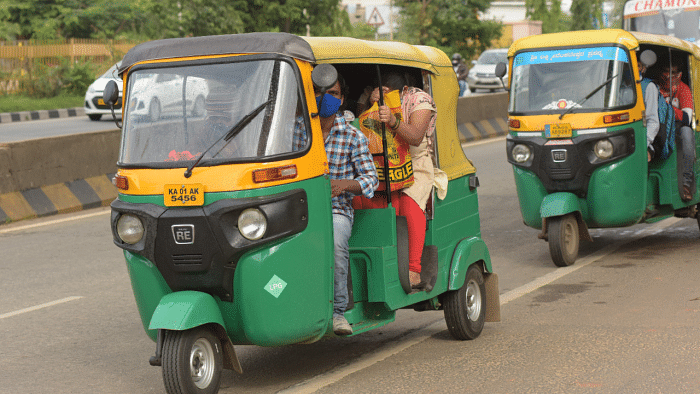
The Karnataka government says aggregation of autos by Ola, Uber and Rapido is illegal. Ten auto drivers’ unions have demanded a complete ban on aggregators, saying the companies are eating into their earnings. Chiranjeevi Kulkarni explains the controversy:
Why aggregators are under fire
The licences of Ola and Uber to aggregate cabs expired last year. When they sought renewal, the State Transport Authority (STA) sought additional details, besides an undertaking that they would comply with all the rules. Rapido, another company, applied for permission to aggregate bike taxis. The STA rejected it, and advised the company to apply for a licence under the Electric Bike Taxi Scheme 2020. Officials say all three aggregators have been violating rules. They cite a High Court order to explain why they aren't acting against the companies.
What's the auto row all about?
The transport department says Ola, Uber and Rapido have never had permission to aggregate autos. Even the licences of Ola and Uber, now expired, were limited to taxis (four-wheelers). According to STA, licensing of the three-wheelers calls for the framing of a separate fare chart for aggregators.
Gaps in the law
The Aggregator Rules allow the companies to aggregate 'motorcabs' defined by the law as vehicles with a capacity to carry a "maximum of six passengers". Sources said the failure to differentiate between motorcabs and auto-rickshaws allowed the companies to aggregate the three-wheelers.
Why the sudden action?
The ride-hailing services may be in a legal grey area now, but their apps were welcomed both by drivers and citizens in the initial days. If passengers got free rides and fare discounts, drivers enjoyed attractive incentives. The steep rise in fares has upset passengers, and a steep fall in earnings has pushed drivers to complain against the aggregators. That said, the companies still have their supporters in both groups. The government has been citing a pending case in the high court for not taking action.
What's the case in the High Court?
The Transport Department framed the Karnataka On-demand Transportation Technology Aggregators Rules, 2016 following a direction from the Karnataka High Court. When the aggregators challenged it, the court struck down some provisions but upheld the constitutionality of the Rules. Uber then filed a writ appeal, and the court said the transport authorities "shall not take any coercive action" till the case is settled.
Rapido approached the court in 2021, petitioning against the rejection of its application. The court directed officials not to take action against the company. When RTO officials cracked down on private vehicles being used as taxis, Rapido filed a contempt case in the High Court.
Questions on legality of bike taxis
The STA has maintained that the Motor Vehicles Act makes a clear distinction between vehicles for personal use (white board) and commercial use (yellow board).
Officials say Rapido's move to enlist owners of personal vehicles not only violates the Act but also puts at risk the safety of ride hailers. Auto drivers are opposing the bike taxis as they take business away from them.
What's the way forward?
The high court's Friday ruling directing the aggregators to follow the fares fixed by the government for auto-rickshaws will bring relief to passengers. However, officials said only clearing the legal challenges to the Aggregator Rules will put an end to the confusion.